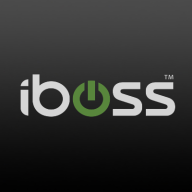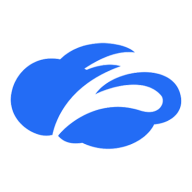


Zscaler Internet Access and Cisco Umbrella are leaders in web security solutions. Zscaler has a slight upper hand due to its advanced threat protection and URL management efficiency.
Features: Zscaler offers URL filtering, malware protection, and advanced threat detection, emphasizing cloud-native features, SSL inspection, and Cloud Sandbox. Cisco Umbrella provides DNS-layer security, Secure Internet Gateway, and Cloud Access Security Broker modules, with strong integration capabilities.
Room for Improvement: Zscaler could improve its reporting accessibility, application integration, and pricing strategy. Cisco Umbrella needs real-time malware monitoring enhancement, better on-premise support, and more flexible policy settings for complex networks.
Ease of Deployment and Customer Service: Zscaler is known for stability and global coverage, though support response times could improve. Cisco Umbrella boasts straightforward deployment in hybrid cloud environments, but support could be optimized for handling large portfolios.
Pricing and ROI: Zscaler, a premium product, offers comprehensive security features, justifying its higher price but is seen as expensive compared to competitors like Fortinet. Cisco Umbrella, slightly more affordable, offers good value with bundled product offerings and license flexibility.
| Product | Market Share (%) |
|---|---|
| Cisco Umbrella | 16.9% |
| Zscaler Internet Access | 14.2% |
| iboss | 2.2% |
| Other | 66.7% |



| Company Size | Count |
|---|---|
| Small Business | 6 |
| Midsize Enterprise | 6 |
| Large Enterprise | 5 |
| Company Size | Count |
|---|---|
| Small Business | 49 |
| Midsize Enterprise | 30 |
| Large Enterprise | 51 |
| Company Size | Count |
|---|---|
| Small Business | 17 |
| Midsize Enterprise | 8 |
| Large Enterprise | 37 |
Iboss offers a comprehensive cloud-based security platform valued for its scalability and autonomous features, ensuring robust security with easy deployment and management capabilities.
Renowned for its robust security architecture, Iboss integrates seamlessly within diverse networks, delivering efficient granular filtering and advanced content categorization. Its single pane of glass console provides ease of management, allowing rapid scalability suitable for rapidly deploying environments. Operates in BYOD setups due to inline filtering without device installation. Integration with cloud-based applications enhances user control, and features like SASE, SSL inspection, and ChatGPT risk protection stand as highlights. Despite its strengths, users have pointed out areas for enhancement like direct navigation in reports, SSL decryption, and better cloud integration while having room to improve data loss prevention.
What are the most important features of Iboss?The usage of Iboss spans educational institutions, specifically K-12, to enforce internet policies, protect data, and support remote work environments. It provides web filtering and security frameworks to ensure safe browsing. Its platform-as-a-service model offers flexibility for both cloud-based and on-premises requirements, integrating seamlessly to deliver enhanced security features suitable for various deployment needs including zero trust, CASB, and network security for work-from-home setups.
Cisco Umbrella delivers rapid DNS security with over 30,000 customers, providing outstanding threat protection and handling more than 600 billion requests daily. It's recognized for high threat efficacy in the SSE domain and integrates elements like SWG, ZTNA, CASB, and more.
Cisco Umbrella is renowned for its effective DNS-layer security against ransomware and phishing. It offers flexible content filtering and integrates seamlessly with existing networks while providing single-pane-of-glass management for centralized monitoring. Its robust threat intelligence and customizable policies are central to its appeal. Users highlight room for improvement in areas like WHOIS data inclusion, malware enhancement, and reporting analytics. Integration with other threat feeds and better client support are requested for more comprehensive coverage.
What are the key features of Cisco Umbrella?
What should users expect in reviews about Cisco Umbrella?
Industries implement Cisco Umbrella primarily for DNS-level security, web filtering, and protecting remote employees. It strengthens cybersecurity frameworks by blocking malware and avoiding access to harmful sites. The tool is widely integrated with Active Directory and Cisco Meraki, providing consistent internet security for employees.
Zscaler Internet Access is a cloud-native security service edge (SSE) platform. Its main purpose is to provide AI-powered protection for all users, all applications, and all locations. The solution replaces other legacy network security solutions to stop advanced attacks and prevent data loss by using a comprehensive zero trust approach.
Zscaler Internet Access Features
Zscaler Internet Access has many valuable key features. Some of the most useful ones include:
Zscaler Internet Access Benefits
There are several benefits to implementing Zscaler Internet Access. Some of the biggest advantages the solution offers include:
Reviews from Real Users
Below are some reviews and helpful feedback written by Zscaler Internet Access users.
A Service Manager at a construction company says, "There are a bunch of different capabilities that are valuable within the platform. We use quite a lot of them, but not everything. The ones that are most important to us are the URL Filtering and the application control. For our needs, the cloud-native proxy architecture is a very good solution. This architecture helps with cyber threats because we inspect most of the traffic and we can see that a lot of threats are stopped directly in the secure web gateway."
Owen N., Security Architect at Claro Enterprise Solutions, explains that the solution’s most valuable features include “The integration of the gateway that inspects all ports and protocols. So, there is threat prevention; The cloud sandbox; VNS security; Access control that will protect URL filtering and the cloud firewall; Data protection that will protect your gateway, like your CASB or your cloud DLP; The capabilities of this will point your traffic to Zscaler Cloud.”
An Architecture Senior Manager at an insurance company mentions, "The data loss prevention feature is the most valuable. It stops our users from inadvertently leaking our customers' data to the Internet or anywhere else it shouldn't go." He also adds, “The solution provides quick access to cloud services, securing our data and allowing us to inspect all our traffic.”
We monitor all Secure Web Gateways (SWG) reviews to prevent fraudulent reviews and keep review quality high. We do not post reviews by company employees or direct competitors. We validate each review for authenticity via cross-reference with LinkedIn, and personal follow-up with the reviewer when necessary.